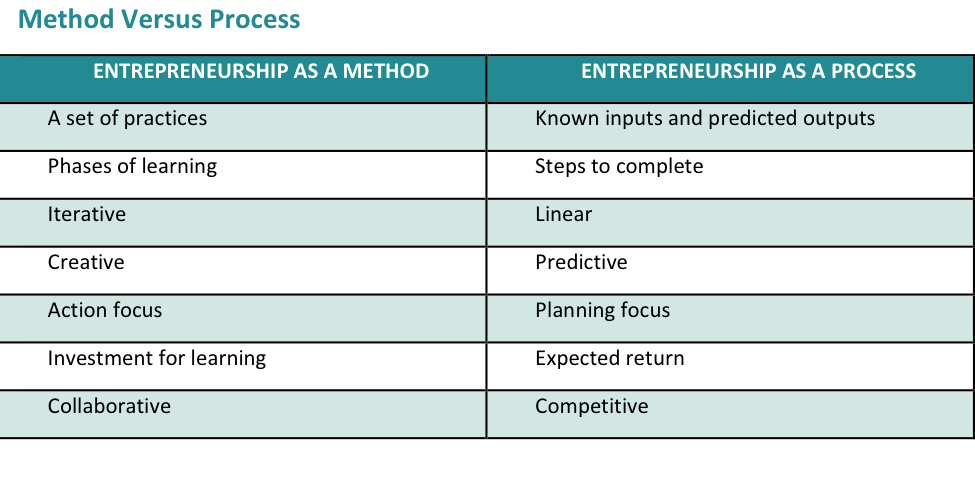The Blueprint for Making an Entrepreneurial Ecosystem
I was excited to be named Executive Director of the Center for Entrepreneurship on July 1, 2017. Prior to Wake Forest, I was at Cornell University for eight years. While at Cornell, I taught entrepreneurship and business strategy at the undergraduate, graduate and executive levels. I was also the founding director of eLab—Cornell’s startup accelerator program hailed by Forbes Magazine as a major driver of Cornell’s rapid ascent to a #4 national ranking in entrepreneurship. Students go through the program, they develop a strong entrepreneurial orientation and mindset, launch a company, succeed, sometimes fail, and then come back to guest speak in classes, mentor current students, join the entrepreneurship advisory council and remain active, highly engaged alums. This intoxicating, vibrant and thriving ecosystem is exactly what we strive to accomplish at Wake Forest. Here’s the blueprint for making it happen.
Philosophy
Research shows that students learn entrepreneurship by actually doing. Central to this notion of practicing entrepreneurship is helping our students develop a keen eye for spotting valuable opportunities and then exploiting these opportunities even if resources are constrained. Alumni with relevant experience (entrepreneurs, investors, and business professionals with domain expertise) figure heavily into this equation as they add tremendous value via guest lectures, mentoring, and connecting our students with the wider community. We seek to graduate students who have experienced the entrepreneurial life cycle; they will go from idea (exists in minds of founders), to concept (early adopters or initial target market has validated idea with financial commitment) to scale (how to sell beyond early adopters to main stream clientele) and then to harvest.
Methodical Approach. There has been a paradigm shift away from thinking of entrepreneurship as a process (a process has known inputs and predictable outputs and does not fit the uncertain, ambiguous landscape of entrepreneurship) to that of a method. The table below succinctly summarizes these differences and we wholly embrace the notion that entrepreneurship is a method that requires practice rather than a cut and dried process that is to be followed.

Credit: Neck, H.M., Greene, P.G. & Brush, C. (2014). Teaching Entrepreneurship: A Practice-Based Approach, Northhampton, MA: Edward Elgar Publishing. http://www.e-elgar.com/
Evidence-Based. The antiquated way of teaching entrepreneurship as a process went something like this: form an idea, raise capital, build the product, build a brand and then offer the product to the market. This approach of introducing new products or services at the end of the process led to catastrophic financial failures such as the Segway (It never really did replace walking!) or Webvan, an online grocery delivery concept that raised $800M in VC money. When Webvan went bankrupt, it was in the midst of building 26 distribution centers across the US. Only one thing was missing: customers! The new approach is evidence-based entrepreneurship, and that approach works this way: idea, engage customer for learning and feedback to validate idea, build the product if evidence amasses, and then build the brand. Rather than teach students that they must raise money to prove their concepts, we use all manners of testing prototypes (customer-funded development or vapor testing, for example) to determine if customers are willing to make a financial contribution to the startup. Buoyed by evidence, the entrepreneurs move forward based on market response.
Entrepreneurism without Walls. Finally, in terms of philosophy, we fervently support our students in their practice of entrepreneurship regardless of their choice of creating economic, social or environmental value. Given the Pro Humanitate mission of Wake Forest, many of our students are interested in making the world a better place. They may be interested in an idea that solves a social problem. Or they may want to solve a problem that helps the environment or makes us a more sustainable community. Or they may want to create economic value by creating a valuable startup. Or some combination of the above. Regardless, we will enthusiastically support our students using their abilities and efforts to bring valuable innovation to the world.
Application
We will apply our philosophy in our entrepreneurship minor and have reworked the curriculum to teach the practice of entrepreneurship via evidence-based entrepreneurship and across the entrepreneurial life cycle from ideation, to concept, to venture, to harvest. This is based on best practices at universities that are leaders in entrepreneurship education (see Morris, Kuratko & Cornwell 2013, Entrepreneurship Programs and the Modern University). Our students will rigorously test their ideas with real target market customers, build prototypes based on feedback from customers, make sales to real customers, and identify potential markets to determine ways to scale a venture. In short, they will become adept at practicing entrepreneurship in order to bring social, environmental or economic value to the world. Further, we have developed programs such as Deacon Springboard (helps students spot and develop valuable ideas into concepts and provides access to mentors or seed capital), Humanitech (helps students develop problem solving skills and solve real world issues under faculty direction) and Startup Lab (helps our most fervent students develop concepts into ventures).
Thus, we have all the components necessary to build a thriving entrepreneurial ecosystem. As the saying goes, we need the straw that stirs the drink. We need alumni to engage with our students, to mentor and coach our students, to take these bright, capable entrepreneurial thinkers in as interns, and to be a regular presence on campus. In short, we need you to really make our entrepreneurial engine go! I would love to connect with you. Please reach out to me (cohenda@wfu.edu) or our awesome Admin Coordinator, Susan Barrett (barretsf@wfu.edu) to schedule a time to talk.
– Dan Cohen, Executive Director of the Center for Entrepreneurship at Wake Forest University

